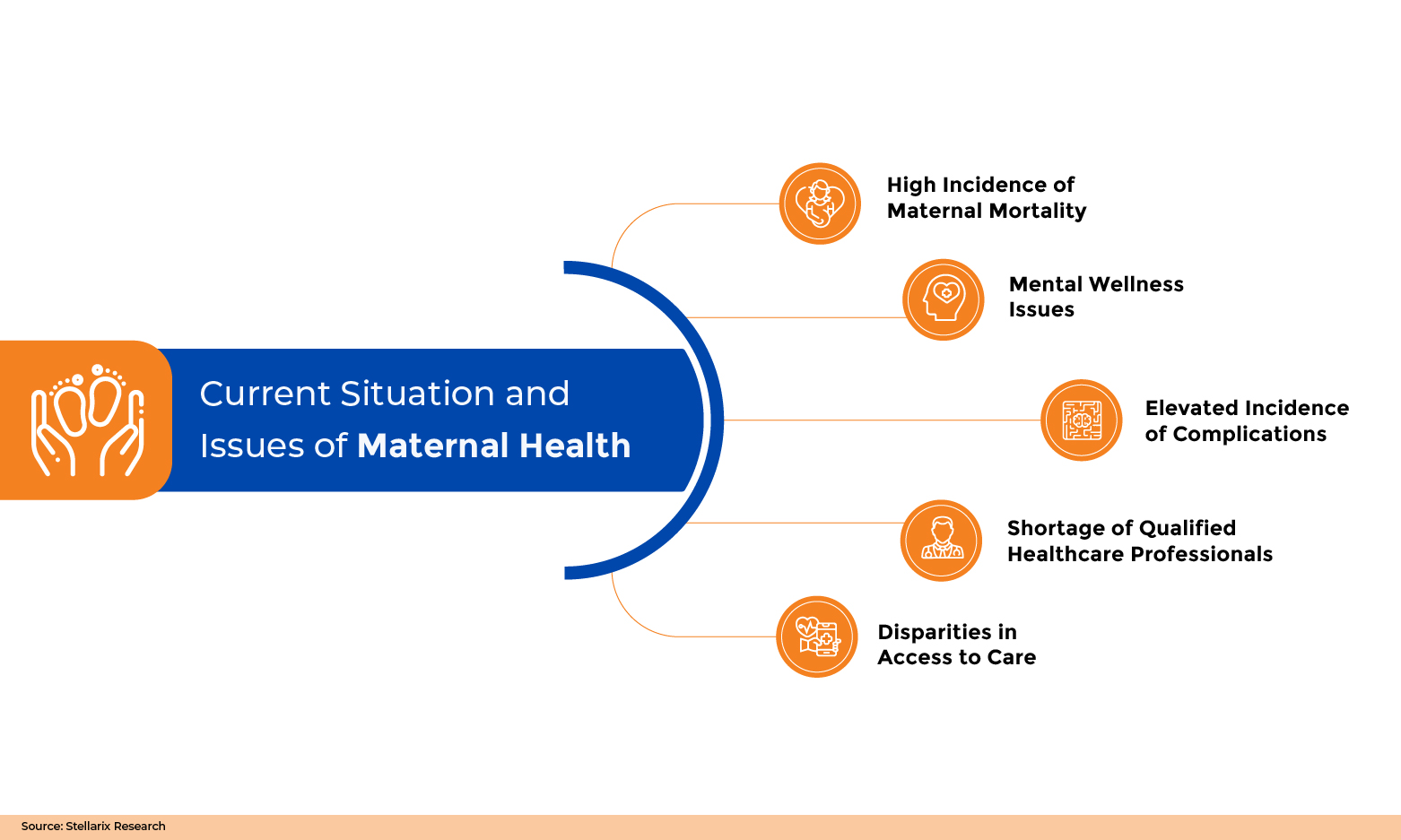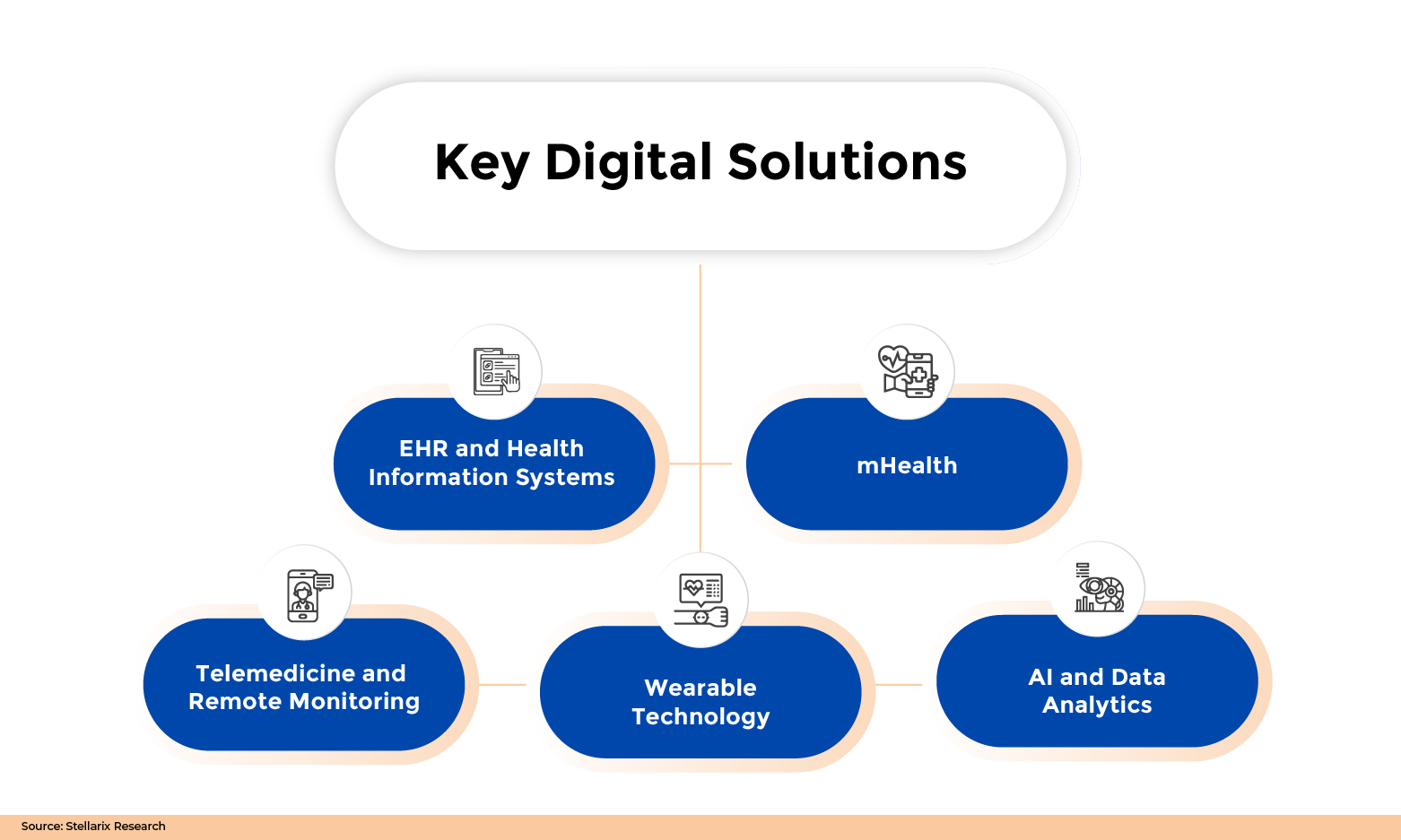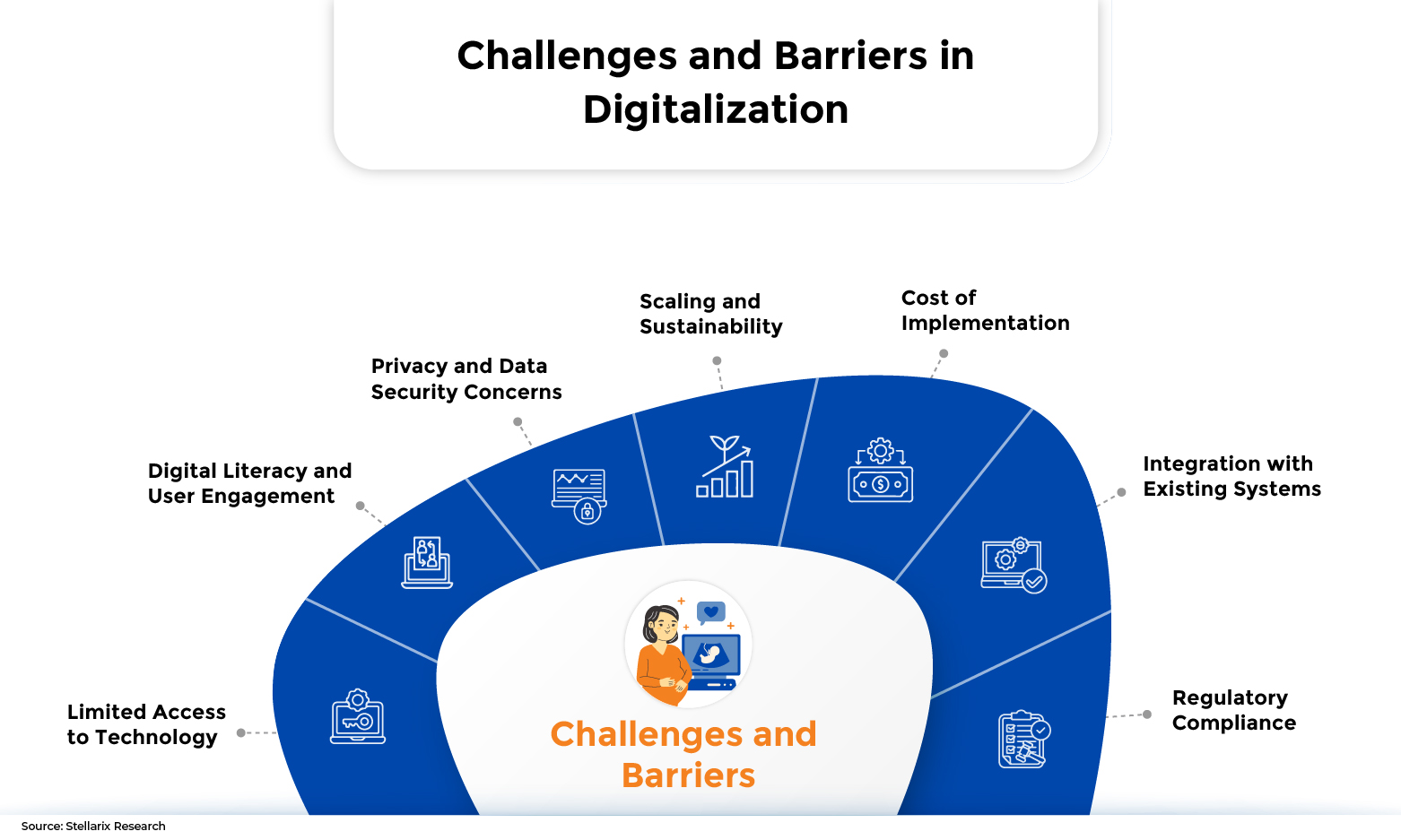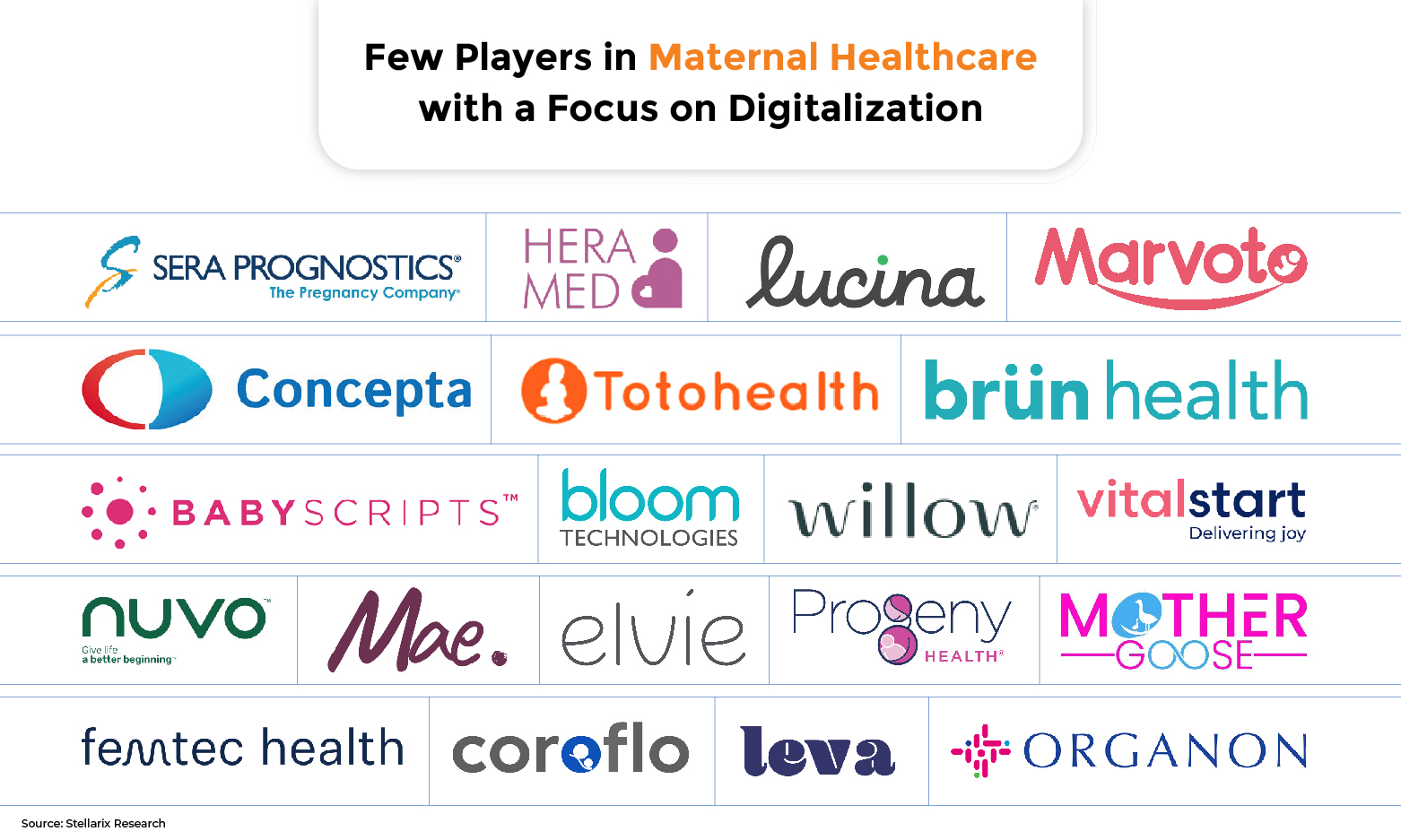Maternal health has still been an issue all over the world as many women continue to die from pregnancy and childbirth-related complications amid medical advancement. In this landscape, innovations contributing to maternal health are coming to light as the new frontier of hope toward redesigning the maternal healthcare industry. The available maternal healthcare technologies are constantly changing due to technological developments and the integration of digital tools, providing better or new opportunities for aspiring mothers and healthcare facilities. This great advancement is providing a new face to maternity care as it is becoming more personalized, efficient, and accessible. With the advancement of technology in today’s society, maternal care is likely to embrace problem-solving efforts to close the gaps that pregnant women and clinicians encounter.
Current Situation and Issues of Maternal Health
There exist several obstacles related to maternal health technologies that negatively affect the health of mothers and children. Here are some of the key issues:
- High Incidence of Maternal Mortality– In many regions of the world, it remains almost intolerably high—the rate of maternal death. The global maternal mortality ratio in the year 2020, as estimated by the World Health Organization(WHO), is 223 per 100,000 live births. Most of these cases can be avoided with early intervention and access to necessary and quality care.
- Disparities in Access to Care– Maternal care remains unaffordable and scarce, especially in low- and middle-income countries and minority groups in high-income countries. Issues like geographical location, socio-economic status, and limited access to healthcare services can bring about these disparities.
- Shortage of Qualified Healthcare Professionals—The lack of skilled human resources in healthcare, particularly midwives and obstetrics, enhances the difficulty of maternal health. This scarcity is keenly felt in developing and remote areas, where such professional care is most required.
- Elevated Incidence of Complications– Complications like preeclampsia, gestational diabetes, and postpartum hemorrhage are examples of complications that can be hazardous if not well controlled. These conditions deserve early diagnosis and treatment, which are hardly given in developing nations.
- Mental Wellness Issues– Mothers’ mental health is often neglected. However, problems such as postnatal depression and anxiety are common and can pose lifelong effects for the mother and the child. Mental health is critical in the care of mothers and should not be overlooked.
Adopting new digital technology in maternal healthcare can result in lower costs of care, low maternal and infant mortality, and better living conditions for families. To put it succinctly, investing in maternal health is investing in humanity’s future.

How Can Digital Solutions Improve Maternal Care?
Digital health solutions used in maternal health can serve as a bridge to increase access to care teams and health services and help patients address particular concerns.
Numerous technologies and solutions are related to digital transformation in maternal healthcare, focusing on maternity clients and practitioners. Digital solutions are being employed from the antenatal stage up to the postnatal stage as they enhance each aspect of maternal care. During the pandemic, expectant families, new mothers, and children have encountered several challenges, which include social isolation and loneliness.
Technology combined with healthcare brings new dimensions where care delivery and the health status of women can be monitored, and maternal support is provided. Here are some of the most impactful tools in maternal health:
1. Telemedicine and Remote Patient Monitoring (RPM)
Telemedicine entails the use of communication technology in the provision of healthcare and consulting advice without physical contact. This includes video calls, telephonic consultations, text, email, or any other form of communication with the care practitioners who manage the patients.
- Telemedicine Platforms: These platforms can be used by pregnant women to do virtual checkups and seek doctor advice without the need to see the doctor physically.
- RPM Devices: Mobile equipment like blood pressure, glucose meters, and fetal heart rate monitors are also capable of transmitting information to the practitioners, hence allowing for constant tracking of the condition of both the mother and the fetus. Modern pregnancy is not a problem for technologies, as special and professionally designed monitors with the help of Artificial intelligence installed in them can monitor the health condition and the development of a fetus.
2. mHealth
mHealth applications are software programs intended to be installed and executed on gadgets such as smartphones or tablets. These apps offer services like health tracking, educational content, and reminders, among others.
- Health Tracking: mHealth apps allow users to log symptoms, track pregnancy, and measure various parameters such as weight, blood pressure, blood sugar levels, fetal movements, and sleep quality.
- Appointment and Medication Reminders: Automated reminders of prenatal checkups facilitate appointment follow-up and medication intake.
3. Wearable Technologies
Devices comprise sensors and applications that monitor and transmit health information in real-time. Smartwatches, sensors, and fetal dopplers with built-in AI can constantly observe the state of pregnant women and fetuses.
- Smartwatches and Fitness Trackers: These devices monitor steps taken, heart rate, sleep, and other health-related parameters
- Specialized Pregnancy Wearables: Pregnancy devices, such as fetal and maternal monitors, can also track fetal movements, uterine contractions, and other pregnancy health parameters

4. AI and Data Analytics
It has been established that the involvement of Artificial Intelligence (AI) and Machine Learning (ML) in healthcare can mark significant advancements in early detection, diagnosis, and tailored care for both the mother and the newborn. Within maternal health, AI is most commonly used for diagnostic purposes where the technologies predict the mother’s risk levels and suggest ideal care practices for the expectant mother.
- Predictive Analytics: Based on large data sets of patient’s medical history and genetic and physiologic data, AI and ML can be used to predict high-risk pregnancies. They can also predict the development of complications such as preterm labor, preeclampsia, or gestational diabetes and offer required precautions.
- Personalized Care Recommendations: The development of AI-based tools suggests that such entities can provide personalized recommendations and interventions that are peculiar to a woman’s health status.
Every hospital and healthcare system can try using data analysis for efficient utilization of resources. At the population level, data analytics can be employed to determine trends and patterns in maternal health. These data can help public health agencies and policymakers in targeting priorities and allocating necessary resources.
5. EHR and Health Information Systems
Electronic health records and integrated health information systems are digital platforms for patient health records. Such systems maintain patients’ complete health information and allow for information exchange between providers.
- EHRs: Electronic records containing a woman’s comprehensive reproductive health history from before conception to the postnatal period
- Integrated Health Information Systems: The systems that enable the communication between the various healthcare entities and ensure proper coordination of care and information exchange
All the above-mentioned innovations are important in redefining maternal health care and providing new monitoring, support, and interception possibilities in and after pregnancy.
Challenges and Barriers to Digitalization of Maternal Health
The ongoing process of digital transformation of maternal healthcare has its advantages; at the same time, it also has several drawbacks and concerns. Promoting data confidentiality and protection, responding to inequalities in technology utilization, and still keeping a human touch in the context of a technologically advanced world are some of the crucial considerations.
Here are some key challenges in the adoption of digital health technologies in maternal care:
- Limited Access to Technology: Social inequities, such as a lack of access to digital equipment and an internet connection, may also limit the use of maternal health digitalization, especially in developing regions with poor infrastructure
- Privacy and Data Security Concerns: Given that maternal health statistics are rather personal, any leakage of statistics involves a high risk of breaching patients’ privacy; thus, the need to enhance protection mechanisms for individual patient data
- Digital Literacy and User Engagement: Some individuals may lack the necessary digital skills, leading to a slow and inefficient adoption of new technologies for maternal medicine. Digital interfaces should be easy to use for the targeted populations, and training should be made accessible.
- Regulatory Compliance: Legal restrictions and compliance standards in the healthcare industry present challenges when creating and deploying digital solutions, as they involve additional effort to meet code and protocol
- Integration with Existing Systems: There are technical barriers in interpreted implementation, such as compatibility issues with other existing healthcare information systems and other platforms that the project has to integrate with
- Cost of Implementation: Creating and implementing technological solutions that can be used in the healthcare sector may be costly. Many healthcare facilities lack enough financial capital, so the cost of procurement and maintenance is high, which hinders adoption.
- Scaling and Sustainability: Pilot projects and initial implementations of strategies on a small scale, therefore, do not necessarily result in large-scale uptake. One of the major issues in any digital health intervention is how to sustain them and ensure scale-up.

Digital Innovations and Players in Maternity Care
Motherhood can be one of the most satisfying and enriching events in a woman’s life; however, it remains one of the most demanding. During pregnancy, a woman’s body undergoes many changes and experiences another change after labor and delivery. Caring for the baby’s health, feeding, sleeping, and development is paramount to the baby’s well-being, but often, mums neglect themselves.
Innovations in technology can complement and assist mothers as they embark on their motherhood path and enhance the health of both the mother and the baby. Below are some companies and startups that have innovated in maternal health and well-being to help millions of moms ensure that they care for their health and their babies.

Future Trends in Digital Maternal Care
With advancements in technology, the future of maternal care seems even brighter. Newer technologies, such as 5G connections, IoMT, and enhanced algorithms in AI, are projected to boost remote monitoring and telemedicine. Also, the current global programs and collaborations are promoting the integration of digital health solutions in developing areas, thus enhancing maternal care results globally. It can be said that the future of better technologies holds the possibilities for better maternal health worldwide and, therefore, could mean more lives saved and better starts for a brand new generation. It is important to note that as the transition from pregnancy to motherhood unfolds, the role and utility of digital devices and technologies will continue to evolve and contribute positively to maternal care. The possibilities are vast, and in the future, it represents the need for these advancements to be accessible to all moms or no family left behind in the Digital Age of Maternal Care.
Conclusion
Maternal digital health transformation has led to the emergence of new forms of possibly convenient and qualitative experiences for pregnant women. To enhance the effectiveness of digital health intervention, it is necessary to discuss the adoption barriers and ethical concerns to enhance maternal health. By embracing the use of technologies and data, healthcare providers can improve the maternal experience, reduce complications, and increase women’s involvement. Technologies in the digital health course have started presenting various solutions to conventional issues in the field of maternal care. This comprises telehealth, mobile health, wearable technologies, data, analytics, applications, and artificial intelligence.